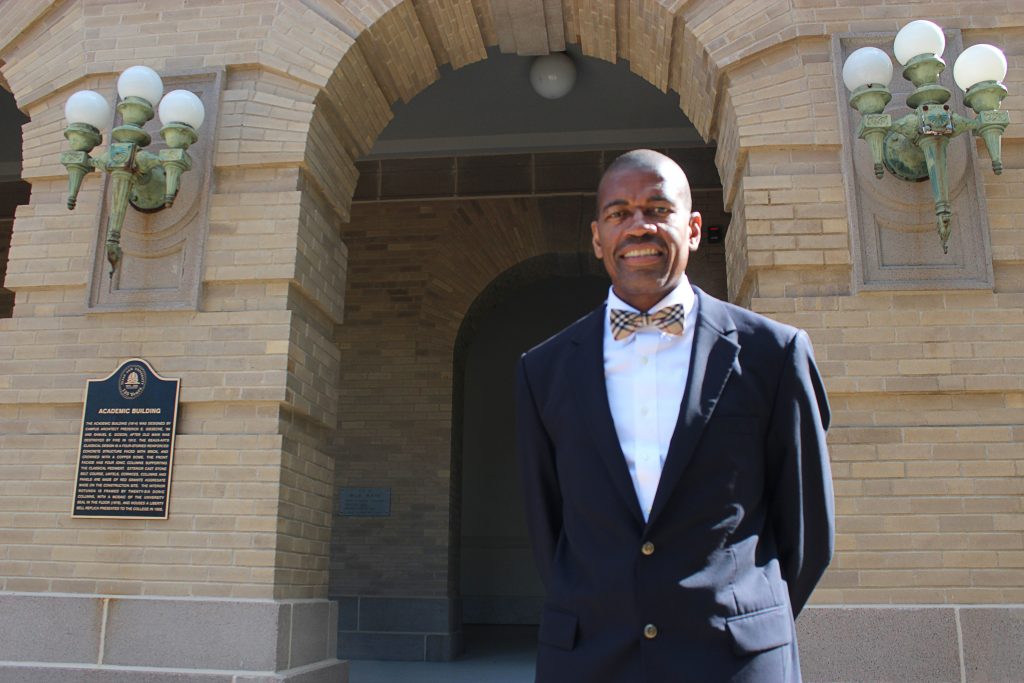Sociology professor selected as finalist for a national teaching award
Three preeminent teachers from U.S. universities have been selected as finalists for Baylor University's 2020 Robert Foster Cherry Award for Great Teaching, the only national teaching award presented by a college or university to an individual for exceptional teaching.

Finalists Selected for Baylor’s $250,000 Robert Foster Cherry Award for Great Teaching
WACO, Texas (March 28, 2019) – Three preeminent scholar/teachers from U.S. universities have been selected as finalists for Baylor University’s 2020 Robert Foster Cherry Award for Great Teaching, the only national teaching award – with the single largest monetary reward of $250,000 – presented by a college or university to an individual for exceptional teaching. The winning professor will be announced by Baylor in spring 2020.
The three finalists are:
- Jennifer Cognard-Black, Ph.D., Professor of English, St. Mary’s College of Maryland
- Nancy Fichtman Dana, Ph.D., Professor of Education, University of Florida
- Reuben A. Buford May, Ph.D., Presidential Professor for Teaching Excellence and professor of sociology, Texas A&M University
As Cherry Award finalists, each professor will receive $15,000, as well as $10,000 for their home departments to foster the development of teaching skills. Each finalist will present a series of lectures at Baylor during fall 2019 and also a Cherry Award lecture on their home campuses.
The eventual Cherry Award recipient will receive $250,000 and an additional $25,000 for his or her home department and will teach in residence at Baylor during fall 2020 or spring 2021.
“The Cherry Committee has the difficult task of naming three finalists from a strong field of more than 135 nominees for the 2020 Cherry Award,” said Michael W. Thompson, Ph.D., committee chair and associate dean for undergraduate programs in Baylor’s School of Engineering and Computer Science. “Learning about each nominee’s accomplishments and dedication to great teaching is both gratifying and inspirational. The three finalists for the 2020 award are excellent scholars and great teachers, and we look forward to their campus visits during the fall 2019 semester.”
The Cherry Award program is designed to honor great teachers, stimulate discussion in the academy about the value of teaching and encourage departments and institutions to value their own great teachers. Individuals nominated for the award have proven records as extraordinary teachers with positive, inspiring and long-lasting effects on students, along with records of distinguished scholarship.
The award was created by Robert Foster Cherry, who earned his A.B. from Baylor in 1929. He enrolled in Baylor Law School in 1932 and passed the Texas State Bar Examination the following year. With a deep appreciation for how his life had been changed by significant teachers, he made an exceptional estate bequest to establish the Cherry Award program to recognize excellent teachers and bring them in contact with Baylor students. The first Robert Foster Cherry Award was made in 1991 and has since been awarded biennially. More about the Cherry Award is available at www.baylor.edu/cherry_awards.
Reuben A. Buford May
Reuben A. Buford May earned his B.A. in criminal justice from Aurora University in 1987, his M.A. in sociology from DePaul University in 1991 and his Ph.D. in sociology from the University of Chicago in 1996. He serves as professor of sociology at Texas A&M University, where, in 2017, he was named Presidential Professor for Teaching Excellence, considered the most prestigious faculty honor for teaching bestowed by the university.
May is the recipient of numerous university undergraduate teaching awards, including the Minnie Stevens Piper Professor Award in recognition for teaching excellence in Texas, Texas A&M’s Glasscock Professorship in Undergraduate Teaching Excellence (2015-2018) and the Association of Former Students Distinguished Achievement Award in the area of Teaching (2013). He also served on the American Sociological Association, Contributions to Teaching Excellence Selection Committee (2003-2006). He has been a fellow at the W.E.B. Du Bois Institute for African and African American Research at Harvard University and a Dr. Martin Luther King Jr. visiting professor at Massachusetts Institute of Technology.
May’s primary research areas are race and ethnicity, urban sociology and the sociology of sport. He studies how some institutions shape situational contexts and how individuals within those contexts negotiate, interpret and define race, class, culture and identity. He has published dozens of journal articles as well as three books – “Urban Nightlife: Entertaining Race, Class, and Culture in Public Space” (2014), “Living Through the Hoop: High School Basketball, Race, and the American Dream” (Association of Humanist Sociology Book of the Year, 2008), and “Talking at Trena’s: Everyday Conversations at an African American Tavern” (2001).
Originally posted here.
